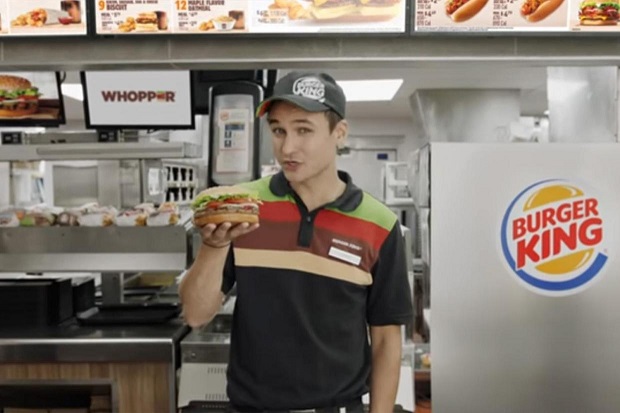A risky “OK Google” prank that went awry for Burger King has won the Direct Grand Prix at the Cannes Festival.

Case study summary
• 15-second TV ad spot featured the phrase, “OK, Google, what is the Whopper burger?”
• Any Google Home device within earshot, upon hearing the prompt, told listeners about the fast-food chain’s burger
• When news got out of the sabotaged campaign, though, it became a viral hit, despite controversy
The challenge
Brands are always keen to jump on the newest technologies to engage their audience and sometimes this means mistakes are made. Burger King wanted to stand out from the crowd with an ad that made use of the growing number of voice activated devices.
The solution
The campaign debuted in April with 15-second spots that featured the phrase, “OK, Google, what is the Whopper burger?”
Any Google Home device within earshot, upon hearing the prompt, told listeners about the fast-food chain’s burger.
The work hit a snag when Google Homes cited the Whopper’s Wikipedia entry, which people quickly edited in disturbing ways—but that likely helped propel the work to become a viral hit.
When news got out of the sabotaged campaign, though, it became a viral hit. And the original intent of bringing the Whopper into people’s homes was fulfilled.
The result
“Google Home for the Whopper” narrowly beat out McCann NY’s “Fearless Girl” for the Direct Grand Prix. Still, State Street Global Advisors’ “Fearless Girl” picked up three Direct Lions, Gold, Silver and Bronze, after earlier landing three Grand Prix honors--in the PR, Outdoor and Glass Lion competitions.
“We had a solidly divided jury,” said jury president Ted Lim, the chief creative officer of Dentsu Brand Agencies, APAC. “We were divided over two pieces of work that we were passionately in love with, equally in love with, so we fought and we fought and we fought, and only after five rounds, close to midnight, one of us was tired—and the scale tipped in favor of the braver piece of work.”
Lim added: “I want to quote one of our jurors. In a very heated moment he said, ‘This is the best abuse of technology.’”
The “Google Home for the Whopper” also struck a nerve with the jury because it was such a distinct piece of work that other agencies or brands wouldn’t be able to copy. Thus, it admittedly wasn’t scalable, but as a onetime stunt, it was remarkable.
“We were looking for something that set the tone for the future,” said Lim. “We wanted something that is not easily replicated. We’re not looking for something that can be manufactured again and again and again.”